Colombia Goes Into Lockdown, Chile Extends School Closures
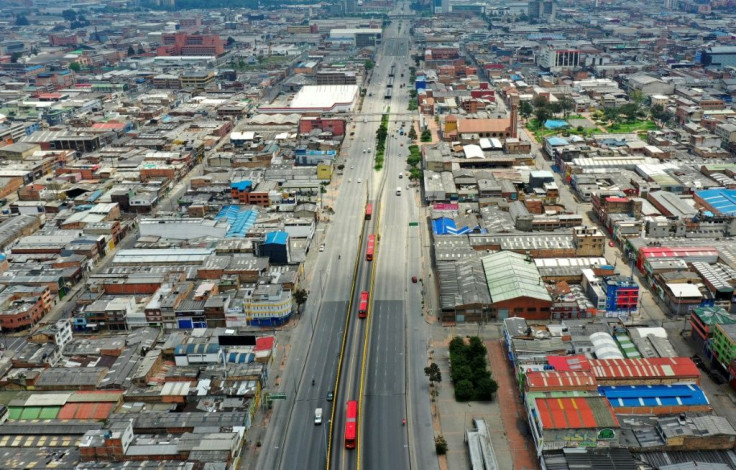
Countries across Latin America have tightened measures to halt the spread of the deadly novel coronavirus, with more lockdowns, border and school closures as well as increased aid to the region's poorest.
As cases of COVID-19 continue to rise -- numbering more than 7,400 and 123 deaths as of Wednesday -- Bolivia and Colombia became the latest countries to impose a total lockdown, while Chile extended its school closures until the end of April.
Here are the latest measures taken in several Latin American nations:
Bolivia is closing its borders and ordering a strict lockdown until April 15 starting at midnight Wednesday, President Jeanine Anez said as she declared a state of "sanitary emergency."
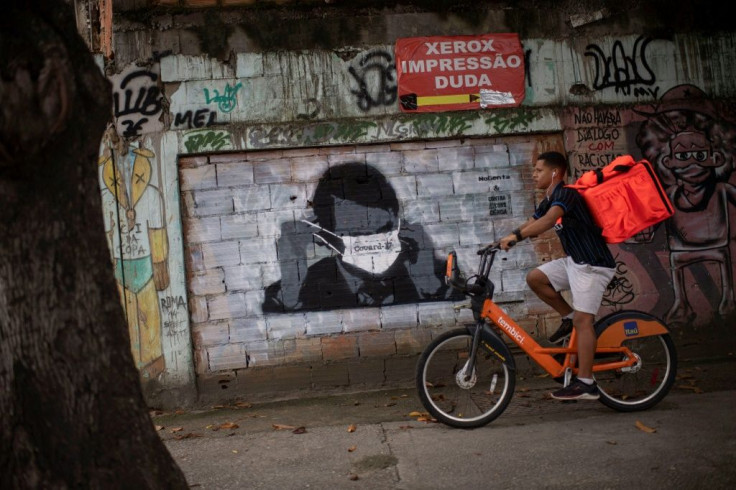
The steps are designed to add teeth to a lockdown that was ordered on Sunday but has largely been ignored.
More police and soldiers have been deployed to enforce the measures, Anez said.
There would be narrow exceptions to who can cross the borders and the times at which people can be outside their homes, she added.
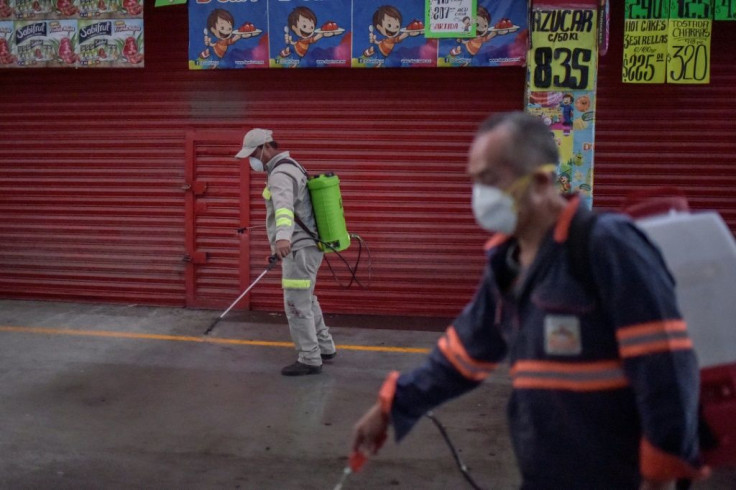
A three-week total lockdown began just after midnight Tuesday and is set to last until April 12.
"Stay at home, prevent the virus from spreading and save lives," said President Ivan Duque.
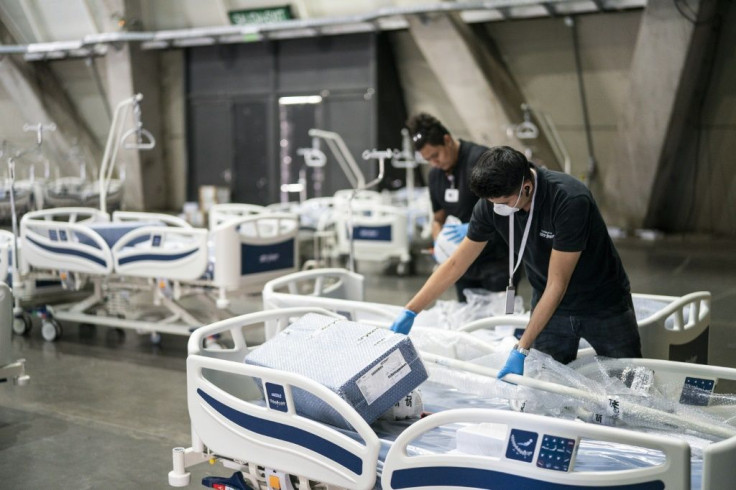
Nearly 500 cases of the deadly virus have been reported in Colombia, which has a population of 48 million.
The capital city Bogota had already been on lockdown since Sunday on the orders of the mayor.
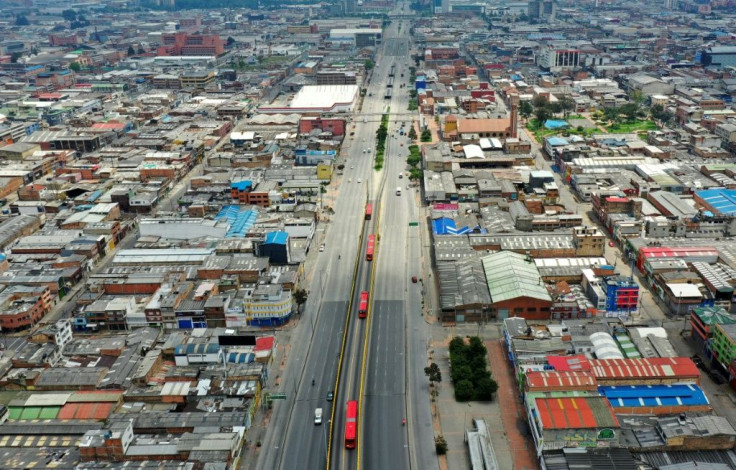
About 1.3 million residents of Santiago -- including those of the Chilean capital's most affluent neighborhoods -- will be on lockdown for least a week starting at 0100 GMT Thursday, officials said.
This follows an order by authorities to extend school closures until May. Classes were suspended on March 16, just under two weeks after the first coronavirus case was recorded.
Chile has reported more than 1,100 infections and three deaths.
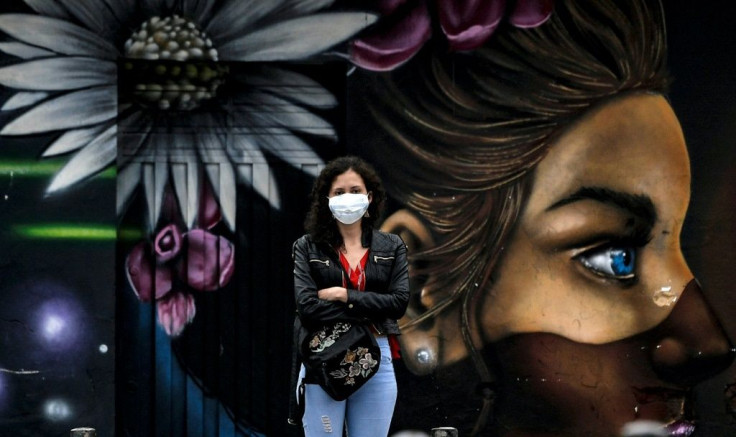
Panama will allow the cruise ship Zaandam -- operated by the Holland America cruise line -- to sail through its canal even though there are 42 people aboard with flu-like symptoms, Health Minister Rosario Turner said Wednesday.
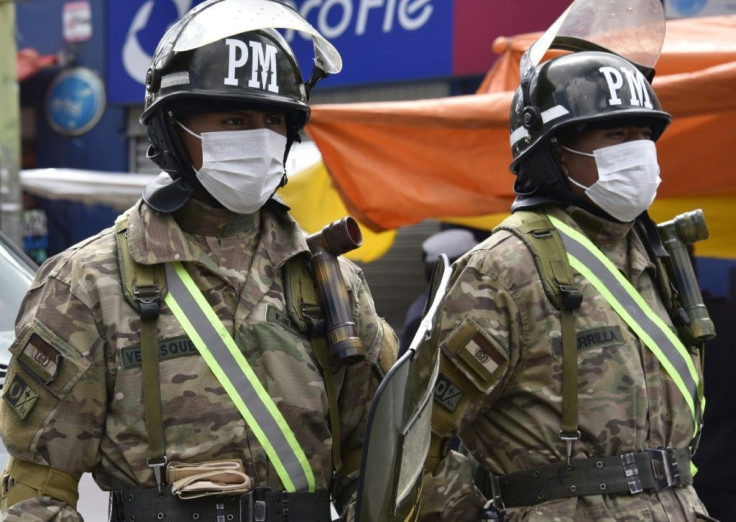
The vessel, with 1,800 passengers, set sail on March 7 from Buenos Aires headed for San Antonio on the central coast of Chile.
But the ship had to alter its plans when ports along the way stopped it from docking due to coronavirus fears.
Every ship that reaches Panama must present a list of sick people, "and if we suspect there are people with respiratory problems, they cannot land," Turner said.
The Zaandam is set to cross the 80-kilometer inter-oceanic Panama Canal on Thursday and meet up on the Caribbean side with another cruise ship, the Rotterdam, which is to deliver supplies and kits to test for COVID-19.
The aim is to reach Fort Lauderdale in Florida on March 30, its operator said.
There have been 558 cases of the virus in Panama, including eight deaths.
Soldiers have begun distributing food to locked-down residents in the poorest neighborhoods of the capital Tegucigalpa.
President Juan Orlando Hernandez said 800,000 poor families -- 3.2 million people -- would receive food to ensure they stayed indoors.
Honduras has recorded 36 COVID-19 cases so far.
President Jair Bolsonaro has warned of possible "chaos" and "looting" of supermarkets if state shutdowns ordered by the governors of Sao Paulo and Rio de Janeiro are not ended.
Bolsonaro, who has repeatedly scoffed at the severity of the deadly pandemic, previously criticized the closing of schools and businesses in Sao Paulo and Rio, two of the country's most populous states.
"Companies aren't producing anything. They can't pay their employees. And if the economy collapses, there won't be any way to pay public officials. We are facing chaos," Bolsonaro said.
If that happens and supermarkets are looted, he added, "we'll have chaos plus the virus."
BBVA, the largest bank in Mexico, has predicted the coronavirus outbreak will cause the economy to contract by 4.5 percent in 2020.
The Spanish bank said Mexican exports would be hard hit by a reduction in demand from the United States, the largest trading partner, if virus containment measures continue.
BBVA also said remittances sent to family members in Mexico could be hit by rising unemployment in the United States.
Other banks, such as Barclays and Credit Suisse, predicted the economy would shrink by 2-4 percent.
On Wednesday, the Mexican government announced it would suspend all non-essential activities starting from the following day to help stem the spread of the virus.
© Copyright AFP 2024. All rights reserved.




















